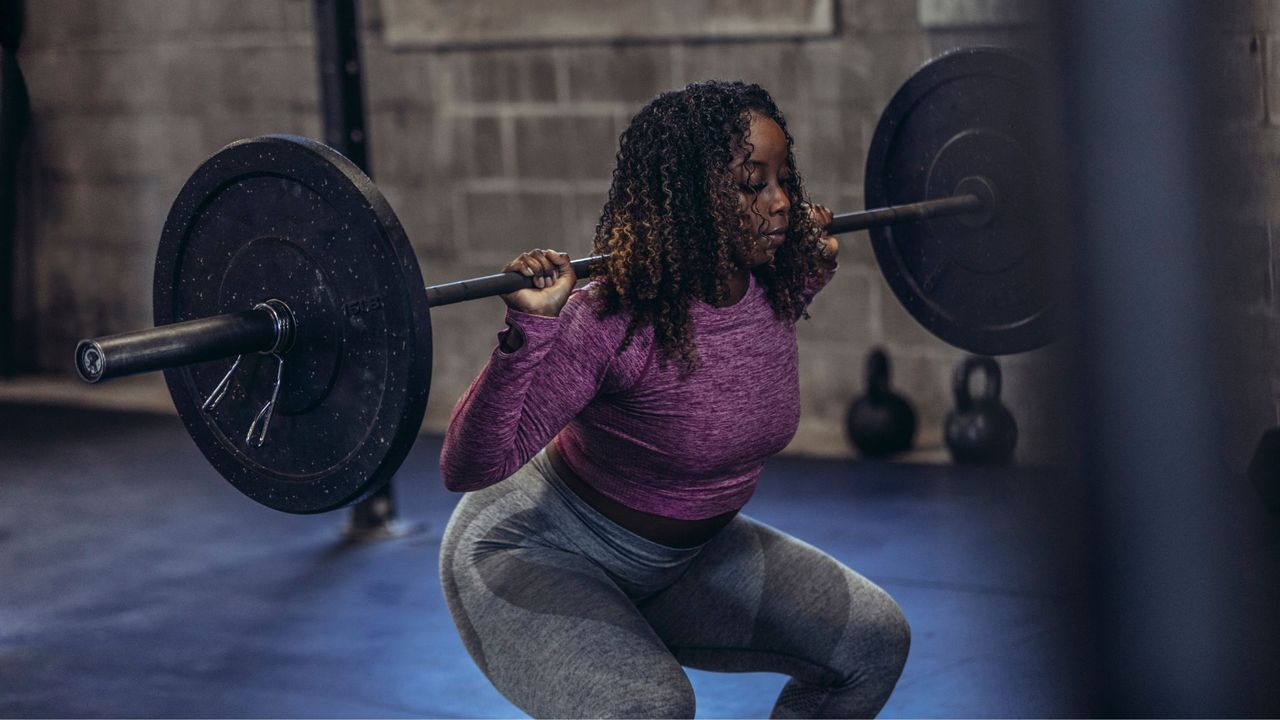Strength training may take 8 years off your biological age if you follow this one rule, new study reveals
The study revealed how long you should lift weights for and how many times a week to boost longevity


Strength training is the gold standard of exercise for looking after your joints, bones, and muscles as you age - but how long should you lift weights for? A new study has suggested a link between how often women lift weights and major longevity benefits.
Strength training, also known as weight training or resistance training, is so important for women. Several studies have shown this over the years - but this is the first one to pinpoint just how long you should lift weights for, how many times over one week, and what benefits to your biological age you can expect to see if you do it.
The study, published in the Journal of Biology (Basel), looked at just under 5000 men and women (with an average age of 42) to examine how strength training can affect the ageing process. Researchers that lifting weights three times a week can provide health benefits equal to being almost eight years younger - provided you do it for one hour each time.
How long should you lift weights for?
To save almost eight years from your biological age (7.8 years to be exact), researchers concluded that an hour of strength training three times per week, working out to 180 minutes total, is needed.
To complete the study, researchers looked at the length of participants' telomeres (protective DNA caps that prevent genetic material unravelling or being damaged) through blood samples. The participants were also asked how often they lifted weights.
As telomeres shorten with age and this shortening is associated with cell transformation that affects our health and lifespan, the longer the telomeres, the better. This study wanted to find out whether strength training could impact the length of these telomeres.
"In this national sample, 90 minutes per week of strength training was associated with 3.9 years less biological ageing, on average," the study found. "Because each year of chronological age was associated with telomeres that were 15.47 base pairs shorter in this national sample, 90 minutes per week of strength training was associated with 3.9 years less biological ageing, on average."
Sign up for the woman&home newsletter
Sign up to our free daily email for the latest royal and entertainment news, interesting opinion, expert advice on styling and beauty trends, and no-nonsense guides to the health and wellness questions you want answered.
"This interpretation suggests that an hour of strength training three times per week (180 total minutes) was associated with 7.8 years less biological ageing."
However, the researchers also found that those who lifted weights for less than one hour per week also experienced benefits. They still had "significantly longer telomeres than the non-strength trainers", the study says, with at least 140 base pairs longer than those who did no strength training at all and less than 100 base pairs shorter than those who did the ideal amount of strength training.
Why is this important?
We know that doing a simple strength training workout at home or going to the gym for one of the many types of strength training, can have so many benefits for our mental and physical health - but the results of this study show just how important lifting weights is for longevity.
"Strength training mitigates some of the damage caused by such chronic diseases, reversing muscle loss, raising resting metabolic rate, promoting fat loss, and improving cardiovascular health," the study summary says.
"In short, by reducing the effects of chronic disease and metabolic risk factors, resistance training appears to slow the biological ageing process and reduce cell senescence, which is evidenced by longer telomeres."
Lifting weights for an hour, three times a week, is ideal - but the study does also promote the benefits of doing less than this. So, even if you only have time to lift your pick of the best dumbbells or do a weighted Pilates workout for 20 minutes a couple of times a week at home, you'll reap the benefits in the years to come.

Grace Walsh is woman&home's Health Channel Editor, working across the areas of fitness, nutrition, sleep, mental health, relationships, and sex. She is also a qualified fitness instructor. In 2025, she will be taking on her third marathon in Brighton, completing her first ultra marathon, and qualifying as a certified personal trainer and nutrition coach.
A digital journalist with over seven years experience as a writer and editor for UK publications, Grace has covered (almost) everything in the world of health and wellbeing with bylines in Cosmopolitan, Red, The i Paper, GoodtoKnow, and more.
-
 What Missoma earrings does Kate Middleton have? The two affordable go-tos the Princess of Wales wears on repeat
What Missoma earrings does Kate Middleton have? The two affordable go-tos the Princess of Wales wears on repeatThe Princess of Wales has an extensive royal jewellery collection but her affordable Missoma pieces are some of her most-worn
By Emma Shacklock Published
-
 Victoria Beckham designed this satin dress with you in mind - the flattering drape and graphite shade make it perfect for eveningwear
Victoria Beckham designed this satin dress with you in mind - the flattering drape and graphite shade make it perfect for eveningwearYou can shop her exact dress today
By Molly Smith Published